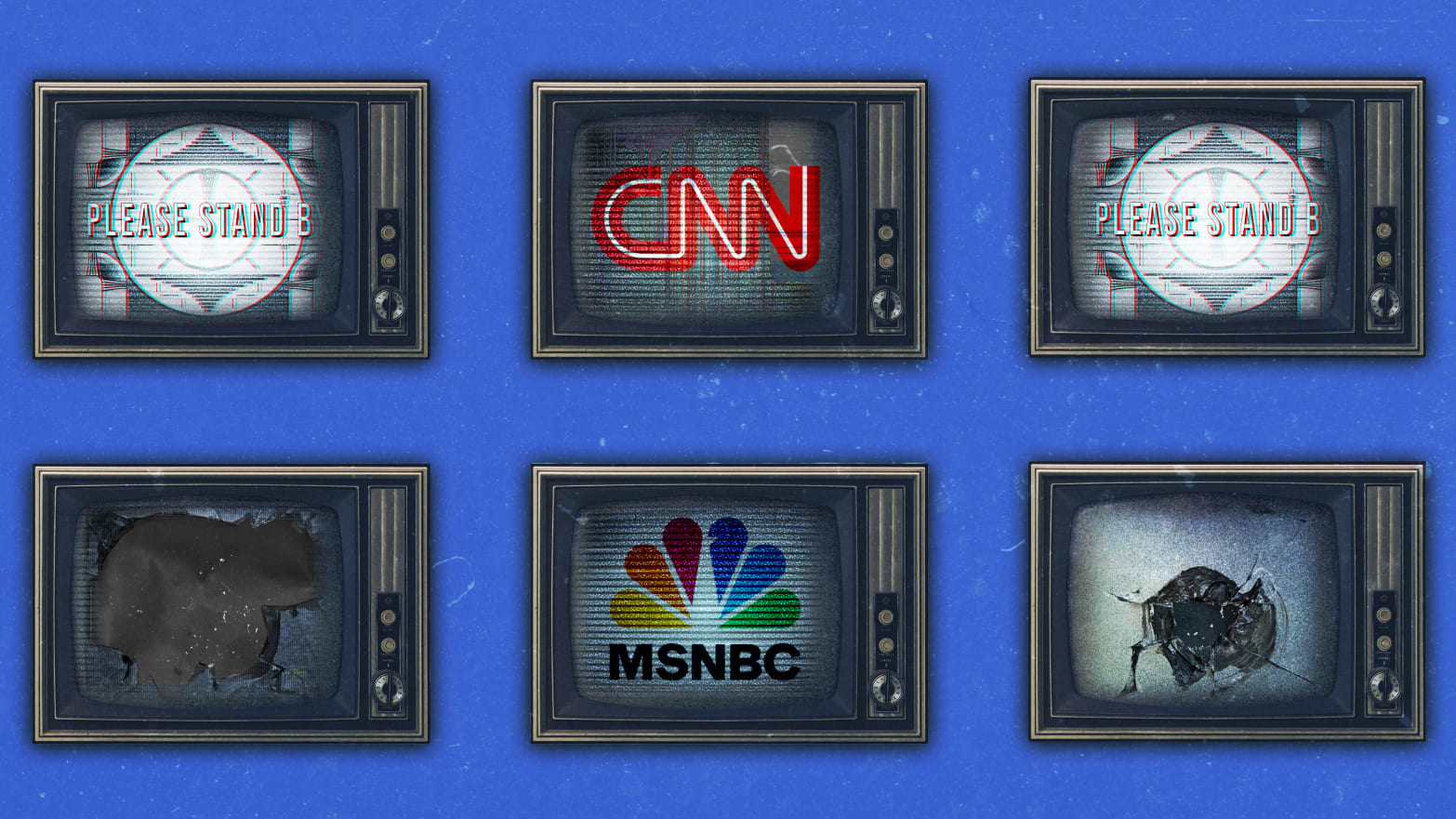Whenever the hype surrounding Florida Gov. Ron DeSantis’ possible presidential bid starts going too far, some old hand will remind you that he still has to schlep to places like Iowa, glad-hand real voters, and survive the national press corps. With his laconic style and animosity toward the media, it’s not clear that DeSantis can make the jump to the big leagues.
The bigger question is whether he will actually have to. More and more, it seems possible that these rites of passage can be dodged. Sure, DeSantis (and other would-be Republican nominees) will give speeches, hold rallies, and the like. But these interactions can be managed and supplemented by Fox News hits (where arguably, more Iowans and Granite Staters would see them anyway).
This week saw a spate of stories about why Republicans have stopped talking to the media and candidates are avoiding debates and banishing media from rallies. This narrative was reinforced at a conservative conference in Florida that featured debates among Republican candidates.
“We in the state of Florida are not going to allow legacy media outlets to be involved in our primaries,” the aforementioned DeSantis reportedly told the crowd. “I’m not going to have a bunch of left-wing media people asking our candidates gotcha questions.”
Republicans’ decision to stop talking to the press, such as it is, is merely the byproduct of a conservative base who no longer has to pay attention to the mainstream news media. Gen Z probably has no idea what it’s like to live in a world where the vast majority of Americans get their news and information from three TV channels, but it wasn’t that long ago!
Are we better off now than we were then?
It might surprise you to learn that I am torn on this one.
As a conservative, I firmly believe that liberal media bias has long existed—and that most progressives underestimate its power (or the damage it has caused). I’m old enough to remember George Stephanopoulos asking a then-apropos-of-nothing question about contraception at a 2012 Republican debate. Why, I wondered, is a former Clinton press secretary essentially vetting the next GOP nominee?
Bias also manifests in subtle ways. Would today’s media be so tolerant of the “spin” suggesting that two consecutive quarters of negative growth doesn’t equal a recession if, say, George W. Bush was president? I think not.
Republicans are to blame for nominating (and then enabling) Donald Trump, but liberal media bias also contributed to his rise.
There are three reasons. First, the liberal media tilt always meant that once technology allowed Republican voters to opt out of the system, they would. Second, having endured warnings about any given Republican’s evil tendencies (see: Mitt Romney’s “binders full of women”—a media-hyped non-scandal if there ever was one), rank-and-file Republicans were inured to legitimate criticism of Trump. And lastly, Trump’s willingness to fight the media—to stand up to them—was seen by many as thrilling and necessary.
On the other hand, it’s impossible to give a ringing endorsement of today’s political or media landscape. The old media, with its gatekeepers and orthodoxy, was slanted. But it served as a common culture, acting as a bulwark against extremist voices, while also providing some semblance of accountability and a reality check.
It’s worth considering, though, the utility of what came to be modern political “horse race” coverage.
Was a politician’s journey through the primary process’s labyrinth—going to pancake breakfasts in Des Moines, being photographed while eating corn dogs by reporters, doing editorial meetings with local papers, and letting a national reporter embed with you—really important to the democratic process? Were politicians more honest and accountable for having run the gauntlet? Were the voters better informed by the experience, or are these just stupid human tricks?
It may be a moot discussion. Today, we have arrived at the point where, in a lot of races, at least, the establishment media’s coverage of a Republican politician doesn’t really matter very much. Rather than wasting energy debunking errors or lamenting bias, Republican politicians can just ignore them.
What is more, we are approaching the point where Republican politicians are looked down upon by their voters for engaging with the press. In this environment, what once passed for fawning coverage would now be seen as a kiss of death. Recent flattering Vogue photos of Ukraine's president and first lady create the impression they are out-of-touch liberal elites. Dr. Anthony Fauci’s celebrity status fueled the notion that he wasn’t to be trusted. For Republicans, appearing on MSNBC or CNN isn’t seen as a tactical error, and it sure isn’t viewed as courageous. Instead, it’s seen as selling out.
As a conservative who longed for the day when the liberal media no longer called the shots, I view this as both a dream and a nightmare. I’m happy that a Saturday Night Live skit can no longer level a Republican politician (see: Gerald Ford and Sarah Palin).
But what did we lose along the way? Among other things, we lost a common culture and a force that moderated both sides. At some point, alternative media became alternate reality.
Rather than seeing this as something entirely new, I think it’s more accurate to see the post-World War II era—including the rise of mainstream media—as being an anomaly.
Much of what we see today is a throwback to a bygone era, since dead-tree tabloids with screaming, sensationalistic headlines have been replaced by viral tweets.
One thing’s for sure. We aren’t going back to the old days. Whether you celebrate or lament this shift, the establishment media monopoly is dead, and that changes everything.

